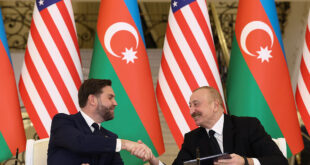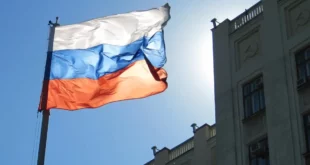Europe’s election watchdog on Friday scrapped plans to monitor Russia’s December 2 parliamentary vote blaming obstruction from Moscow, but Russia hit back saying it suspected Washington may have been behind the move.Western powers — who say they are concerned democracy in Russia is under threat — backed the watchdog’s decision, setting them on a collision course with the Kremlin, which accuses the West of lecturing it about its internal affairs.
The Organization for Security and Cooperation’s (OSCE) ODIHR arm, which runs election monitoring missions, said Moscow’s failure to issue entry visas to its observer team forced it to conclude Russia was not willing to cooperate.
“In a letter to the Russian Central Election Commission, the ODIHR Director, Ambassador Christian Strohal, regretted this conclusion, but said that due to delays and restrictions, ODIHR would be unable to deliver its mandate,” it said in a statement.
“Despite repeated attempts to attain entry visas into the Russian Federation for ODIHR experts and observers, entry visas have continuously been denied.”
In a strongly worded statement issued in response, Russia’s foreign ministry said it had not created obstacles for the observers but that these had been “invented” by ODIHR chiefs as an excuse to cancel the observation mission.
It added: “The circumstance that C. Strohal decided to cancel sending an ODIHR mission to Russia immediately after completing his visit to Washington attracts attention to itself.”
That chimed with suspicions voiced by Russian officials that Western states use election observation missions as a tool to pursue their political agendas, especially in ex-Soviet states.
Russian President Vladimir Putin is running in the election at the head of the United Russia party ticket. His opponents say they believe the Kremlin will use its control of the media and bureaucratic resources to skew the vote in Putin’s favor.
Officials in Moscow say the vote, for the State Duma lower house of parliament, will be free and fair.
“UNFORTUNATE”
In Washington, State Department spokesman Sean McCormack backed the OSCE’s decision to pull out of the Russian vote.
“It is extremely unfortunate that the Russian government decided to put up all of these obstacles to the OSCE sending a monitoring mission to Russia,” he told reporters.
“I am not sure that you can find a case in the past where … a member country had put up such obstacles,” he added. Britain’s foreign ministry also said it was disappointed about the restrictions Russia imposed on the observers.
The only previous occasion ODIHR has accepted an invitation to monitor a vote, then pulled out, was a municipal vote in Albania in 1996, a spokeswoman for the Organization said.
It has in the past also turned down invitations from Turkmenistan and Uzbekistan, two ex-Soviet states with autocratic rulers.
International observers from other bodies are still expected to monitor the Russian vote, including the OSCE’s Parliamentary Assembly and the Council of Europe.
But ODIHR’s mission is usually the biggest at votes in ex-Soviet states. Many Western governments see its assessments as the yardstick of whether an election is free and fair.
Earlier this month, Russian election chiefs drew concern from Western governments by limiting the ODIHR mission at the December 2 vote to 70 observers.
At the previous parliamentary election in Russia in 2003, it sent 400 observers. They concluded that vote had not been fully fair, citing unequal access to the media for the opposition.
 Eurasia Press & News
Eurasia Press & News



